Basic Addition Addition Worksheets for Ages 6-7
16 filtered results
-
From - To
Unlock the world of mathematics for your child with our Basic Addition Worksheets designed specifically for ages 6-7! These engaging, printable resources help young learners build a strong foundation in addition, enhancing their early math skills. Featuring colorful illustrations and a variety of fun exercises, children will practice adding single-digit numbers, developing number sense and problem-solving abilities in an enjoyable way. Our worksheets are perfect for homeschooling, supplementary practice, or classroom activities. Watch your child's confidence soar as they master basic addition concepts and gain a love for math. Explore our collection today and make learning a joyful experience!
Basic addition skills are crucial for children aged 6-7 as they form the foundation for future mathematical learning and overall academic success. At this age, children are not only building number sense, but they are also learning to apply these skills in everyday situations. For instance, understanding basic addition helps children in practical scenarios like counting money, telling time, and sharing equally among friends.
Moreover, mastering addition promotes critical thinking and problem-solving abilities. When children learn how to add, they begin to develop a sense of logic and sequence, allowing them to tackle more complex mathematical concepts later on, such as subtraction, multiplication, and division.
Teachers and parents play a vital role in this developmental stage. Engaging children in fun, interactive addition activities builds their confidence and encourages a positive attitude towards math. By fostering a love for learning at this age, parents and teachers help cultivate lifelong learners who are not only proficient in math but also equipped with essential cognitive and social skills.
In short, investing time and resources into helping children master basic addition is essential in laying the groundwork that supports their future academic journey and personal development.
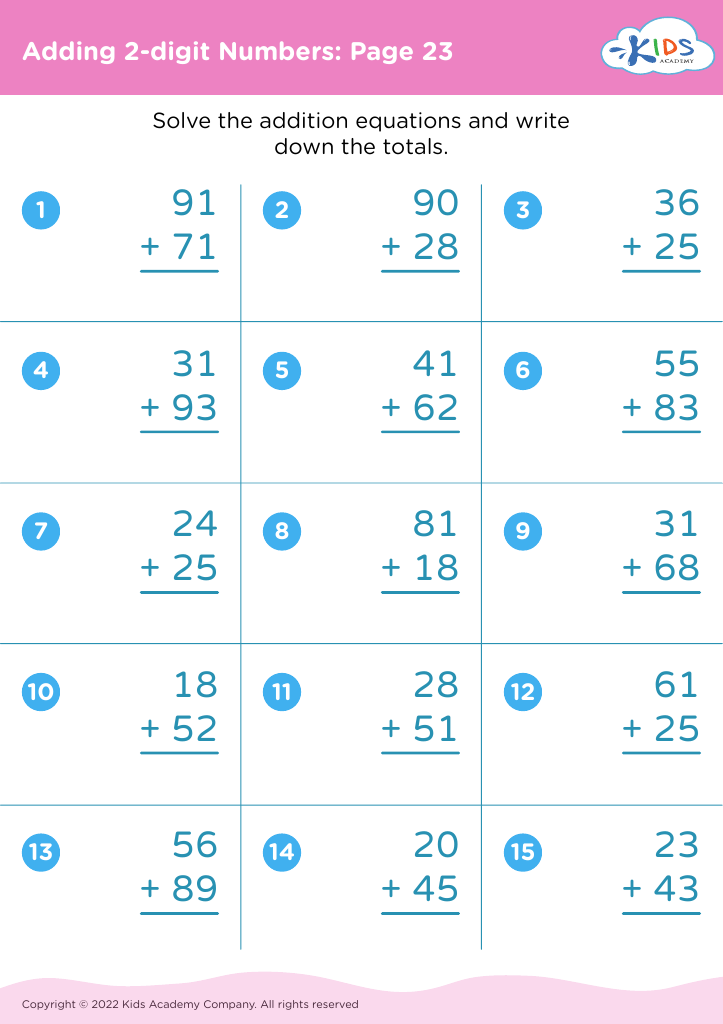

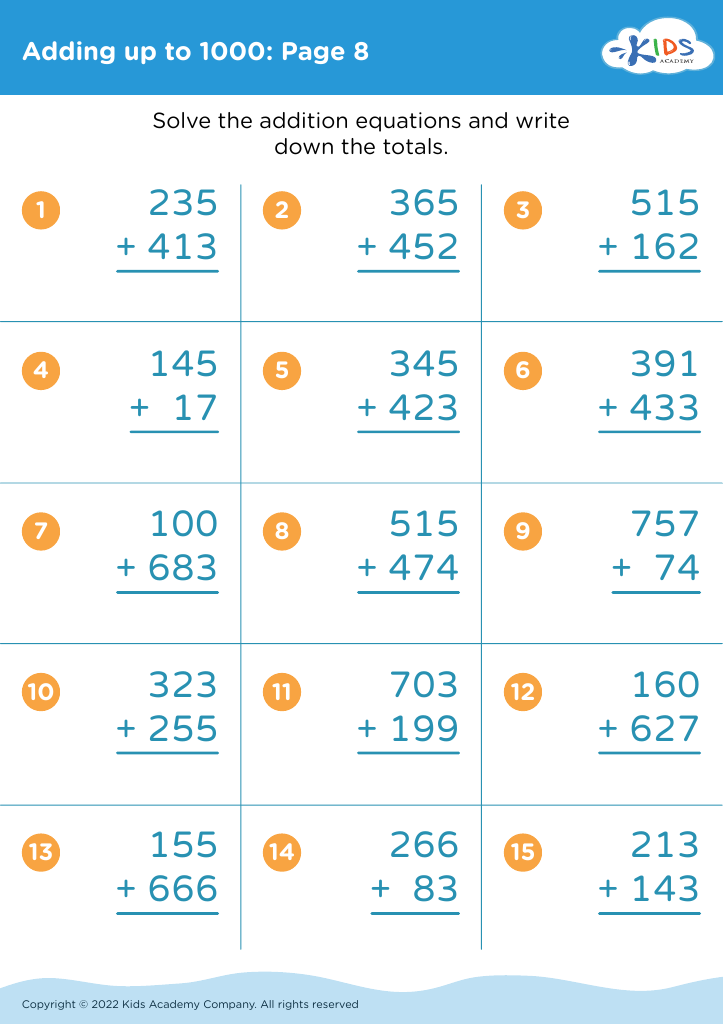








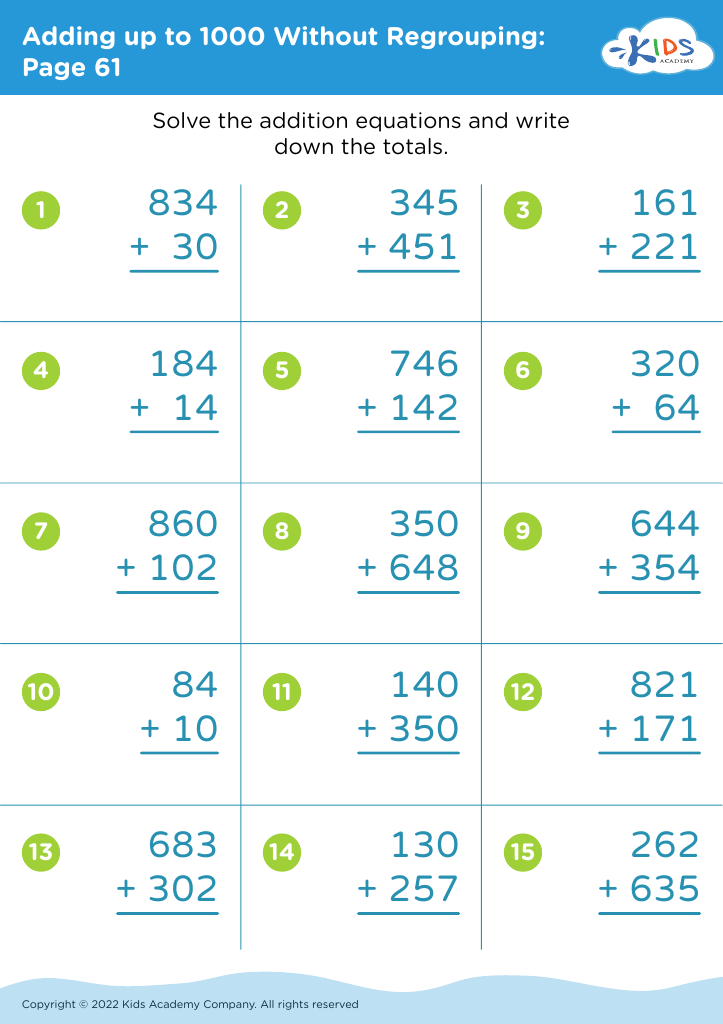
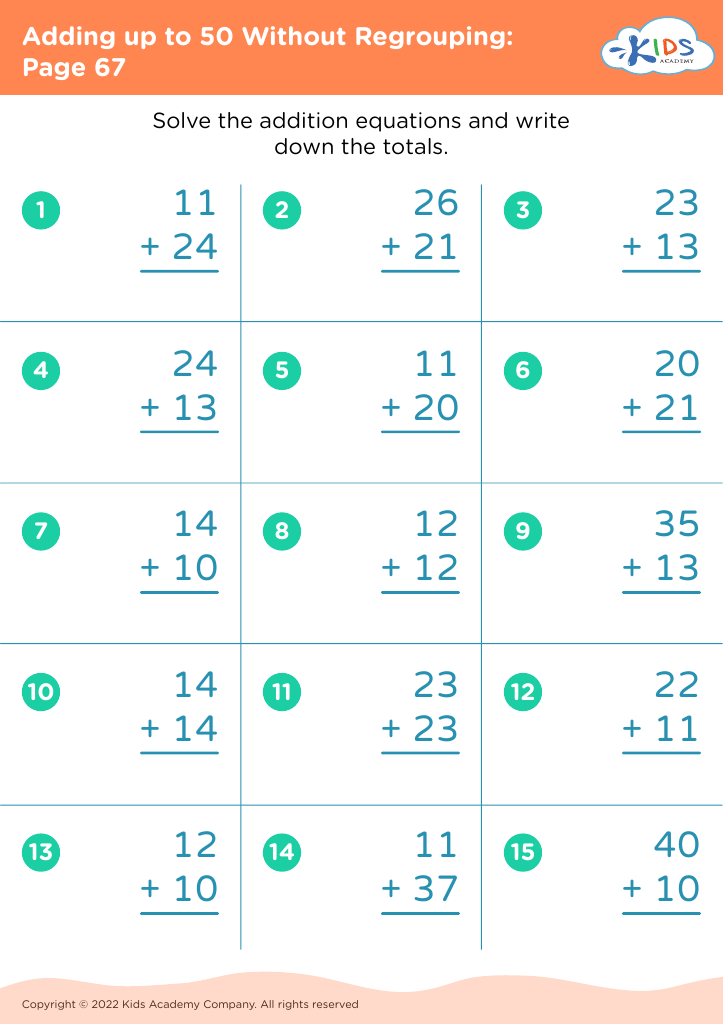
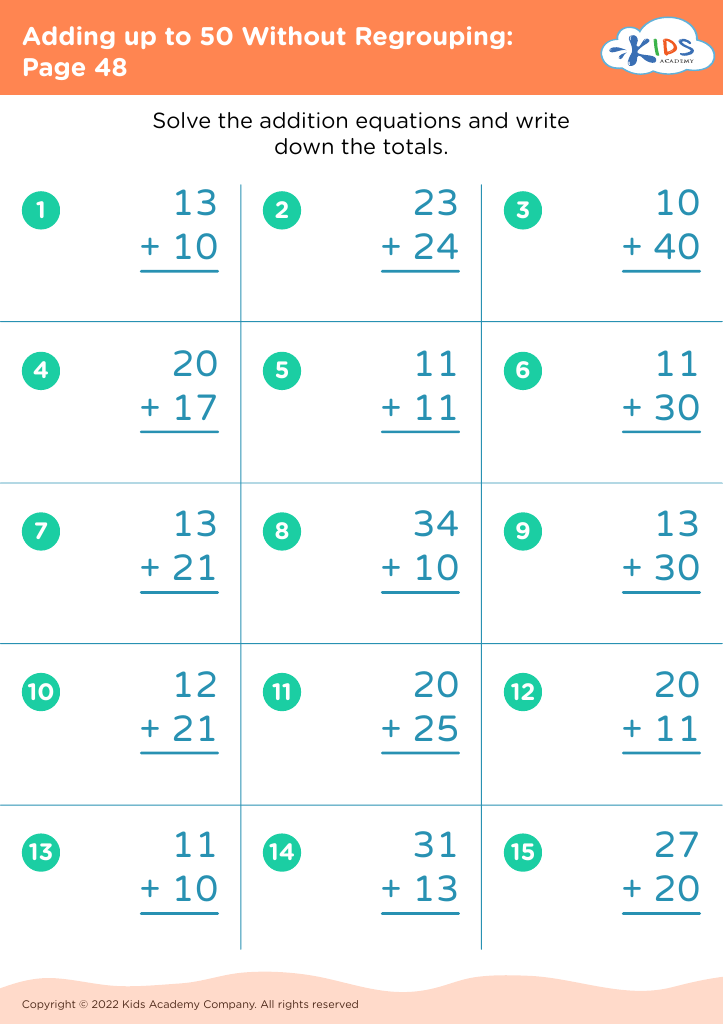
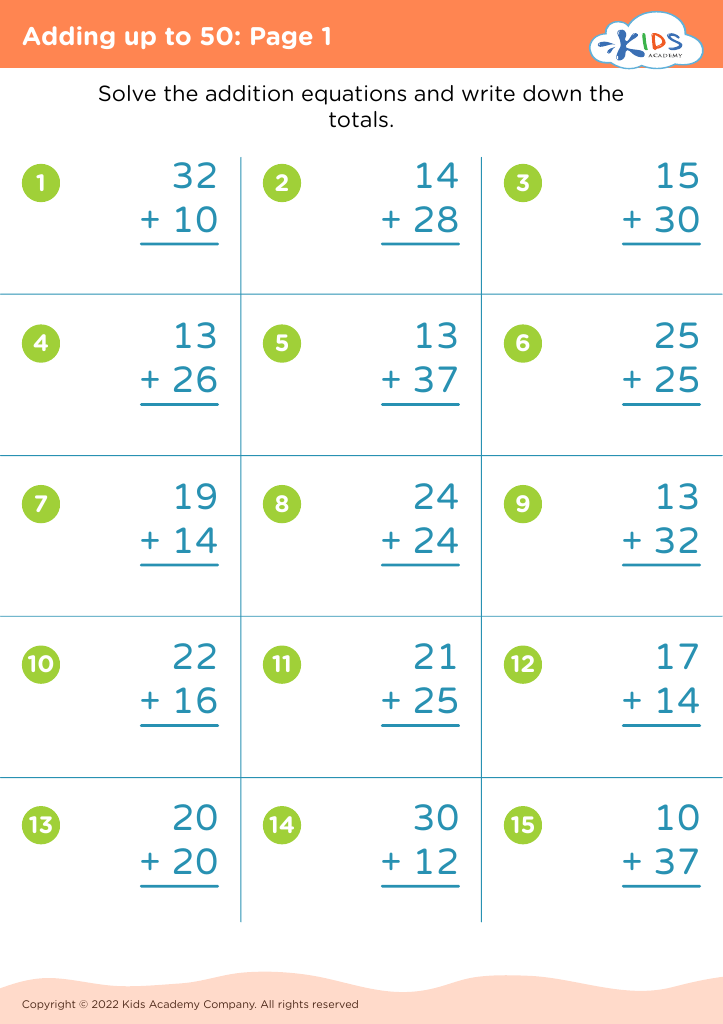

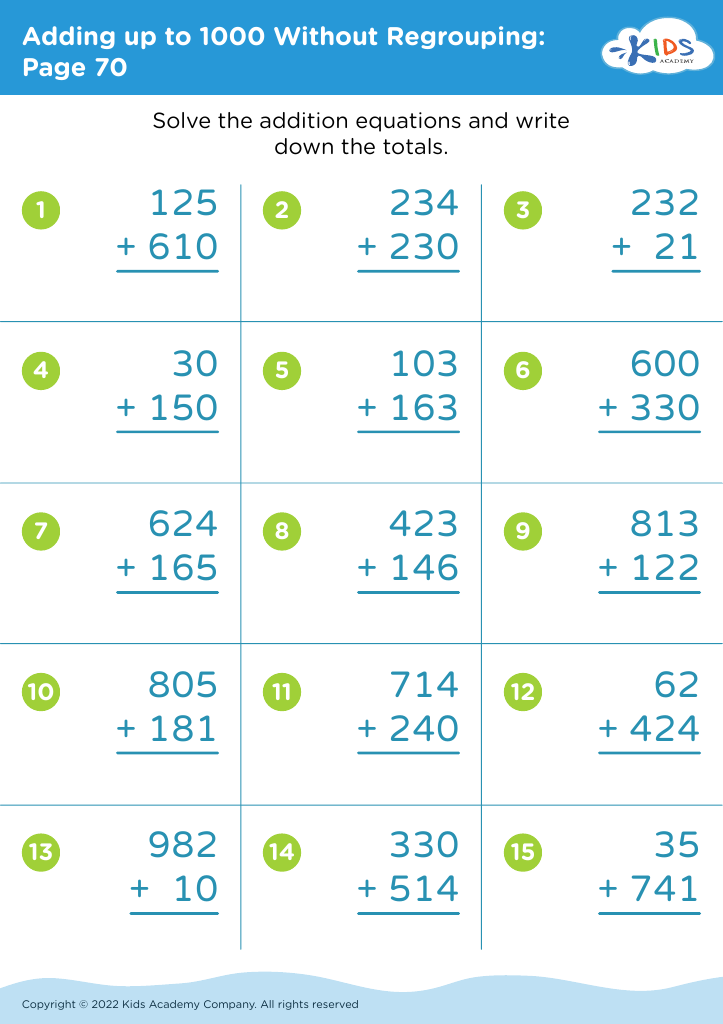



.jpg)












